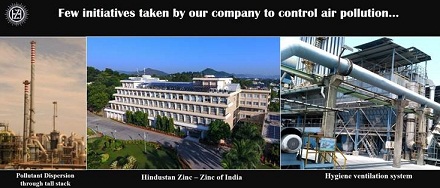 As I walked through the streets of Delhi, I could taste and feel the different chemicals in the air. Today, doctors often say that, ‘breathing air in India is like smoking 50 cigarettes in day’.
As I walked through the streets of Delhi, I could taste and feel the different chemicals in the air. Today, doctors often say that, ‘breathing air in India is like smoking 50 cigarettes in day’.
Seeing a random couple walk down the streets of India today, with their pollution protection masks, is not a rare sight. If not a mask, we always make sure that we have a towel or a handkerchief as we get out for work. There was a time when we would walk or even jog down the same streets during early mornings to breathe some fresh air and for some morning motivation. Unfortunately, this is not the case today.
As of November 8th 2017, pollution causing matter in the air across the globe was measured 48 times more than the guideline value established by the World Health Organization.
The Global annual mean CO2 concentration has increased by more than 45% since the start of the Industrial Revolution, from 280 ppm up to 410 ppm as of mid-2018 and we have contributed to this in small ways through the emission of vehicles, burning of plastic and other waste materials, burning of incense sticks, firecrackers, burning cigarette buds etc.
Interestingly, NASA has launched a public competition that asks people to turn Carbon Dioxide into molecules that would help astronauts tolerate the harsh atmosphere on Mars. Called the “CO2 Conversion Challenge”, the competition asks public to discover ways to develop new synthesis technologies that use Carbon Dioxide as the sole Carbon source to generate molecules that can be used to manufacture a variety of products, including “substrates” for use in microbial bioreactors.
We are proud that at Hindustan Zinc, we are taking several steps to ensure that our mines, smelters and residential complex are pollution free.
For suppressing the dust generated on roads, Rampura Agucha Mine installed Jacon water canon, a water spraying equipment that improves air quality by suppressing the dust generated on haul roads as well as on freshly blasted stope. The nozzle of this water canon can turn 360 degrees covering all areas.
The Company continues to invest in reducing air emission levels through adoption of cleaner technologies/fuels, monitoring of combustion efficiencies and investments in state-of-the-art pollution control equipment, such as bag filters, electrostatic precipitators, etc.
Also, regular monitoring of significant air emission parameters, such as Particulate Matter, Nitrogen Oxide and Sulphur Dioxide is done to ensure compliance with regulatory requirement. Majority of our units have online ambient air quality monitoring station to meet the National Ambient Air Quality standards.
Initiatives are also taken at Yashad Bhawan like the fresh air ventilation system with active cooling system to improve air quality.
Let us contribute to control air pollution in small ways like – not burning plastic, vegetables and other food items, having regular pollution check of our vehicles, installing solar panels on house roof top, by planting sapling around our house and in colony etc.
“Manthan”, an initiative by Hindustan Zinc, is a series of stories to bring awareness about various concerns like air pollution, water pollution, plastic pollution, noise pollution, climate change, road safety and wildlife protection.